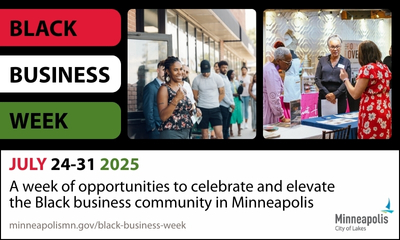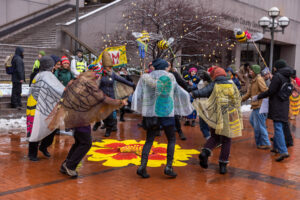
EPNI activists demonstrated with art and dance in 2022.
BY DEBRA KEEFER RAMAGE
How do you ‘celebrate?’
There are two major ways to relate to Earth Day, among those who are not climate-deniers or otherwise pooh-pooh the whole idea. One way is more for people who are broadly supportive of green solutions, climate concerns, voluntarism, and the environmental movement in all its forms. (Or most of its forms.) These people are very pumped by the idea of doing something “meaningful” on or around Earth Day. Often, like most of us, they have a vague, guilty sense of unease that their efforts year-round to reduce, reuse and recycle are not working, or are not enough. They are not climate activists, often because they consider themselves activists in another important area, and you can only do so much. These people, at least in the U.S., are in the majority.
The other group is the climate activists. This too is a heterogeneous group, because the “environmental problem” is huge and complex, and again, one person can only do so much. Often these people do their activism through a broader formation, such as socialism, anarchism, feminism, academics/science, or spirituality. This is usually done as a recognized group such as Democratic Socialists of America (DSA) – my group of choice – or Extinction Rebellion, Greenpeace, or the Union of Concerned Scientists. For these people, Earth Day may be neither a time to take special action, nor a time of celebration.
It’s sort of like Easter for laidback Christians versus Easter for a serious Christian. Or Mother’s Day for a struggling mother versus Mother’s Day for someone who just has a mother. It’s like you’re glad to see all these people out doing stuff for the cause, but you wonder where they were the last 11 months. And while everyone else is doing performative zeal, you are resting from your labors and taking stock.
Also it’s possible, indeed likely, that you may have a foot in both camps. So in this article, we will provide handy information for both groups.
Local ongoing efforts for the full-time environmental activist
The Twin Cities is a hotbed of environmental activism. The organizations and projects covered here are by no means a complete list. Another qualification, if you are short on time and/or expertise but really care about any of these groups, is to not feel bad if you “just” give money. And if you don’t have a lot of money, consider a recurring monthly donation of just a few dollars.
A lot of the most compelling work being done locally is around environmental justice. There were several things that happened over the past five years that have brought crisis and opportunity for change in the environmental justice area:
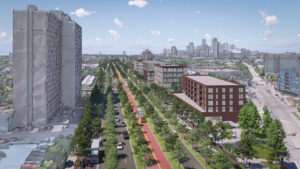
Rendering of design for boulevard to replace I-94 through
Cedar-Riverside
• East Phillips Neighborhood Institute (EPNI), after a decade of struggle, won the right and acquired the money to purchase the former Roof Depot building, heading off a city plan to site a high-traffic maintenance facility after demolishing the building. The group is now working on transforming the building, which sits atop an arsenic-laden dump which would be released if the building were to be demolished, into an indoor year-round aquaponic farm.
• The DFL trifecta Legislature passed the Cumulative Impacts Bill, which will be a powerful tool for neighborhoods overburdened with toxic industries to block or close down those polluters.
• Also in 2023, the city of Minneapolis passed a Climate Equity Plan with ambitious goals for equitable conversion to sustainable solutions to climate change.
• Smith Foundry, in the same East Phillips neighborhood, was found to have been violating state environmental standards on toxic emissions.
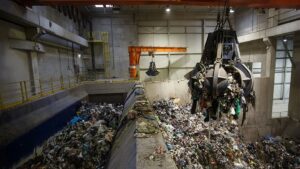
Stygian depths of the HERC incinerator
• The HERC incinerator has surpassed 30 years of operation, considered the maximum lifespan for an incinerator.
• Hennepin County adopted a zero-waste plan. Since the HERC is county-owned, this is a great legal tool for hastening the shutdown of the incinerator, since their zero-waste goals will be impeded by its continued operation.
• A study is underway for alternatives for I-94, which is also at an advanced age, and several groups have formed around the idea of replacing it with a boulevard, as well as various reparation measures for Black neighborhoods destroyed by its construction, particularly the Rondo neighborhood in St. Paul.
If you are interested in getting involved in any of these ongoing struggles – building the EPNI urban farm and associated social amenities, closing down the HERC as soon as possible, closing or relocating Smith Foundry and tightening up enforcement of environmental regulations, designing and building a more sustainable replacement for I-94 in the Twin Cities, attaining climate equity in our cities – here is a list of organizations working on one or more of them:
• East Phillips Neighborhood Institute, epnifarm.org.
• Minnesota Environmental Justice Table, mnejtable.org/anti-incinerator-campaign.
• Climate Justice Committee, linktr.ee/climatejusticecommitteemn.
• Twin Cities DSA, twincitiesdsa.org.
• Minnesota Interfaith Power & Light, mnipl.org.
• Community Power, communitypowermn.org.
• MN350, mn350.org.
• Twin Cities Boulevard, twincitiesboulevard.org, streets.mn.

Earth Day 5K Bee Run/Walk
Local Earth Day activities for the concerned-but-busy-elsewhere environmental supporter
Earth Day celebrations and workday projects abound in the Twin Cities. Here is a partial list:
Annual river gorge cleanup (Friends of the Mississippi River). Date/time: Saturday, April 20, 9:30 a.m. to noon. Place: West River Parkway and 36th Street (for individuals and groups of 10 or fewer), Minneapolis. More info: No advance registration needed; co-sponsored by MPRB and supported by Longfellow Community Council. Groups of more than 10 should meet at 44th Street and the Parkway.
Earth Day cleanup (Minneapolis Park Board). Date/time: Saturday, April
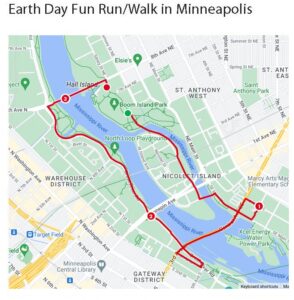
Course map for the Earth Day 5K Bee Run/Walk
20, 9:30 a.m. to noon. Place: Numerous park locations to choose from! More info: See minneapolisparks.org and go to Events – Earth Day to see locations and more information.
Earth Day celebration (Harriet Alexander Nature Center, City of Roseville). Date/time: Saturday, April 20, times TBD for scheduled events. Place: Harriet Alexander Nature Center, 2520 Dale St. N., Roseville. More info: See the City of Roseville website for forthcoming details and registration.
Nokomis East Neighborhood cleanup (Nokomis East Neighborhood Association, NENA). Date/time: Saturday, April 20, 10 a.m. to noon. Place: Shoreview Triangle, 5342 25th Ave. S., Minneapolis. More info: No RSVP for this event, but RSVP for pollinator workshop even if you’re doing both.
Pollinator Workshop (Nokomis East Neighborhood Association, NENA). Date/time: Saturday, April 20, 1 to 3 p.m. Place: Agrarian Seed and Garden, 5152 Hiawatha Ave., Minneapolis. More info: RSVP at www.nokomiseast.org/event-details/learn-to-grow-a-home-habitat/form; learn which plants are best for local wildlife; free with suggested $10 donation.
 5K Bee Run/Walk and Cleanup (Great River Coalition). Date/time: Saturday, April 20, 9 a.m. to noon. Place: Boom Island Park, Minneapolis. More info: Register at register.chronotrack.com/r/75196; $40 in advance, costumes OK, prizes awarded.
5K Bee Run/Walk and Cleanup (Great River Coalition). Date/time: Saturday, April 20, 9 a.m. to noon. Place: Boom Island Park, Minneapolis. More info: Register at register.chronotrack.com/r/75196; $40 in advance, costumes OK, prizes awarded.
Concordia Earth Day 5K (Concordia College, St. Paul). Date/time: Saturday, April 20, 9 a.m. to noon. Place: Concordia University, 1282 Concordia Ave., St. Paul. More info: Proceeds and donations to Minnesota Environmental Partnership; open to all ages and abilities.
Earth Day Gravel Grinder (Imminent Brewing, Northfield, and Bicycle Alliance of Minnesota). Date/time: Saturday, April 27, all day. Place: Imminent Brewing, 519 Division St. S., #2, Northfield. More info: There are four separate rides, based on ability. Registration required, plus a donation of any amount to Climate Ride. See bikemn.org/events and scroll to Earth Day Gravel Grinder for registration form and details.




